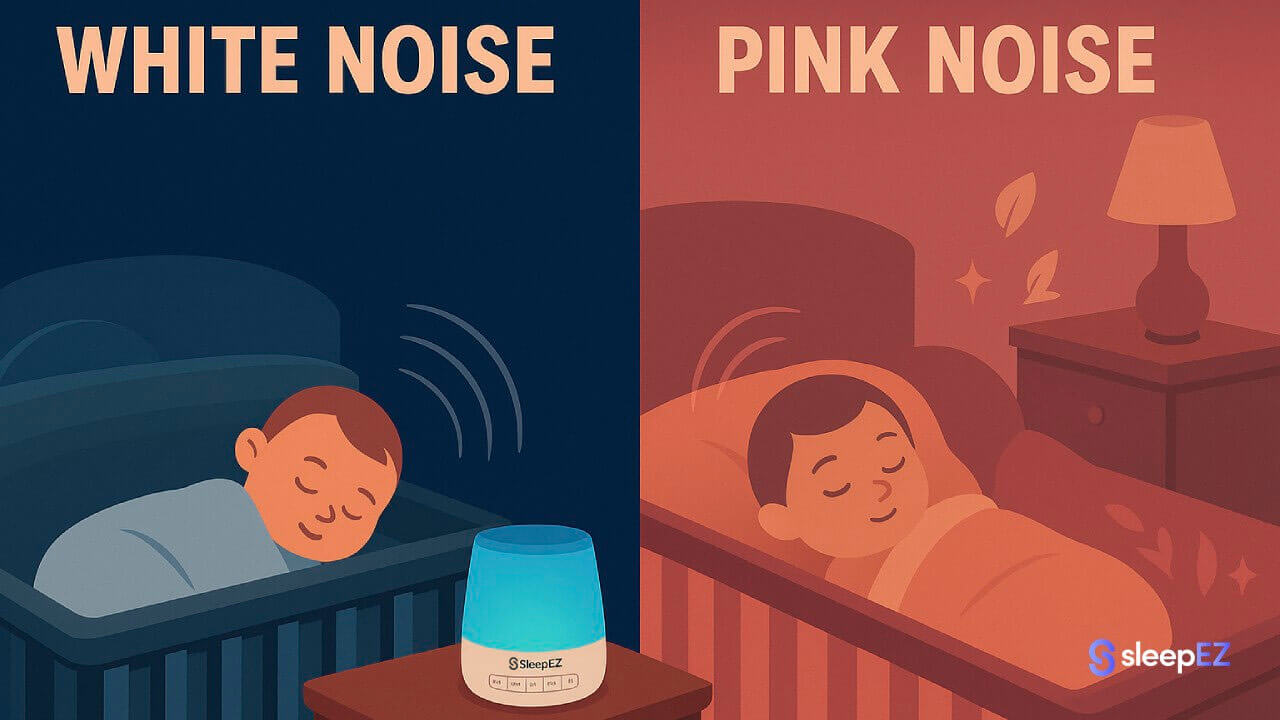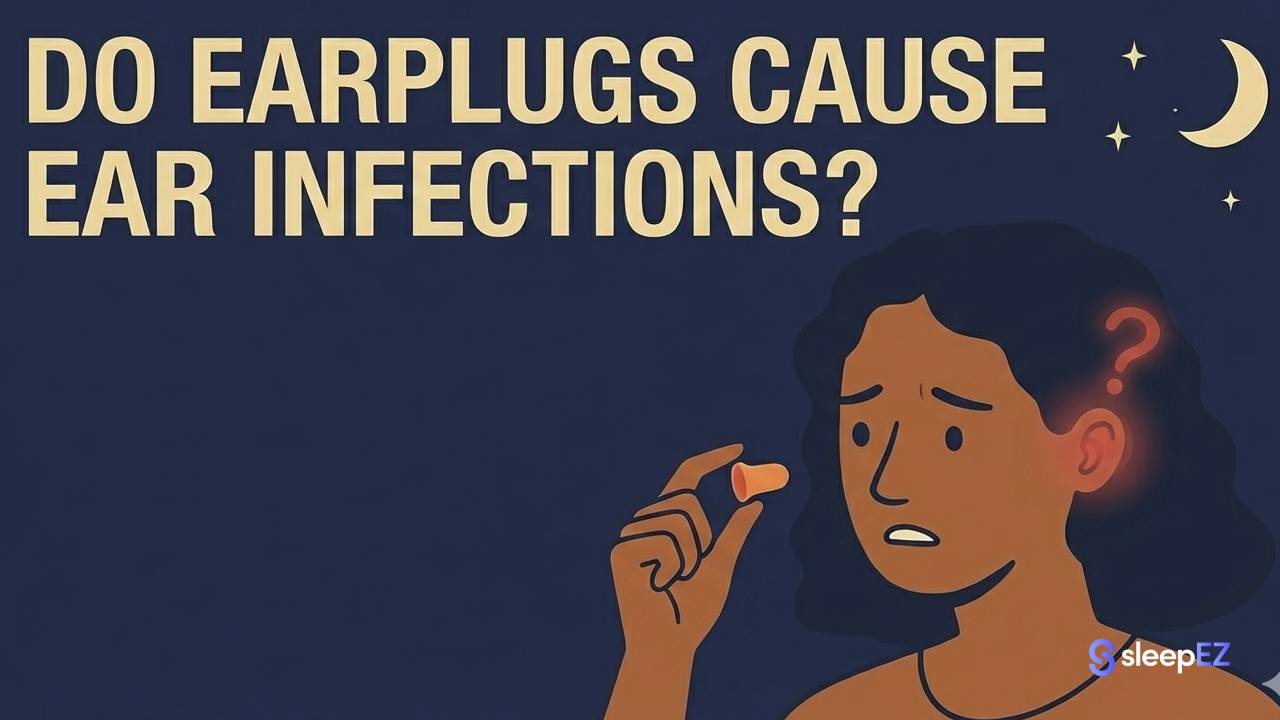Most adults need 7 to 9 hours of sleep per night. If you regularly sleep more than 9 hours and still feel tired, you might be oversleeping.
Oversleeping means sleeping more than 9 to 10 hours on a regular basis. It's also called hypersomnia or long sleep duration. While getting enough rest is important, sleeping too much can harm your health just like sleeping too little.
Research shows a U-shaped curve for sleep and health risks. People who sleep less than 6 hours face health problems. People who sleep more than 9 hours face similar risks. The sweet spot is 7 to 9 hours.
Health Risks of Oversleeping
Sleeping too much isn't just about feeling groggy. It's linked to serious health conditions. Here's what the research shows.
Type 2 Diabetes and Metabolic Problems
People who sleep more than 9 hours have a 50% higher risk of developing type 2 diabetes compared to those who sleep 7 to 8 hours. Long sleep duration affects how your body processes glucose and responds to insulin.
Oversleeping is also connected to weight gain and obesity. When you sleep too long, you're less active during the day. This reduced activity slows your metabolism and makes weight management harder.
Heart Disease and Stroke
The cardiovascular risks are significant. Studies show that sleeping more than 9 hours increases your risk of:
- Heart disease by 38%
- Stroke by 65%
- Early death from all causes by 30%
These numbers come from large population studies tracking thousands of people over many years. The link between long sleep and heart problems is one of the strongest health risks associated with oversleeping.
Depression and Anxiety
Mental health and sleep have a complicated relationship. Depression can cause oversleeping, and oversleeping can worsen depression. About 15% of people with depression sleep too much.
When you oversleep, it can disrupt your circadian rhythm. This disruption affects serotonin and other brain chemicals that regulate mood. The result is a cycle where poor mental health leads to more sleep, which leads to worse mental health.
Cognitive Decline and Memory Problems
Your brain needs the right amount of sleep to function well. Too much sleep can cause:
- Brain fog and difficulty concentrating
- Poor memory and trouble learning new information
- Slower reaction times
- Increased risk of dementia in older adults
One study found that people who slept more than 9 hours performed worse on cognitive tests. Their brain function was similar to people who slept less than 6 hours.
Headaches and Physical Pain
Many people who oversleep wake up with headaches. These "weekend headaches" happen when you sleep much longer than usual. The extra sleep affects neurotransmitters in your brain, including serotonin, which can trigger headaches.
Back pain is another common complaint. Lying in bed for extended periods puts pressure on your spine and reduces muscle activity. This can cause stiffness and discomfort that lasts throughout the day.
What Causes Oversleeping?
Understanding why you're sleeping too much is the first step to fixing the problem. Oversleeping isn't usually just laziness or poor habits. In most cases, there's an underlying reason your body demands extra sleep.
The causes range from medical conditions and sleep disorders to medications and lifestyle factors. Identifying what's driving your long sleep hours helps you find the right solution.
Hypersomnia: The Medical Term
Hypersomnia is the clinical term for excessive sleepiness. It comes in two forms:
- Primary hypersomnia: Excessive sleepiness with no clear cause
- Secondary hypersomnia: Caused by another medical condition
People with hypersomnia sleep long hours at night and still feel tired during the day. They may take long naps that don't feel refreshing.
Sleep Disorders
Several sleep disorders can cause oversleeping. These conditions disrupt your sleep quality, which means your body tries to compensate by keeping you in bed longer.
Even if you sleep 10 or more hours, you may still wake up feeling tired because the sleep itself isn't restorative.
Sleep apnea is one of the most common culprits. This condition causes you to stop breathing repeatedly during the night.
Your sleep quality suffers even though you're in bed for many hours. Your body tries to compensate by keeping you asleep longer.
Restless legs syndrome creates uncomfortable sensations in your legs and disrupts sleep. Like sleep apnea, it reduces sleep quality and can lead to longer sleep duration.
Narcolepsy causes sudden sleep attacks and excessive daytime sleepiness. People with this condition often sleep long hours and still struggle to stay awake.
Mental Health Conditions
Depression is strongly linked to oversleeping. When you're depressed, your body may use sleep as an escape. The lack of motivation and energy makes it hard to get out of bed.
Anxiety can also cause oversleeping, though it more commonly causes insomnia. Some people with anxiety sleep excessively as a way to avoid stressful situations.
Seasonal affective disorder (SAD) often causes oversleeping during winter months. The reduced sunlight affects your internal clock and mood.
Medical Conditions
Hypothyroidism slows your metabolism and makes you feel constantly tired. People with an underactive thyroid often sleep more than usual.
Chronic fatigue syndrome causes severe exhaustion that doesn't improve with rest. Many people with this condition sleep excessively but never feel refreshed.
Heart disease and other chronic illnesses can increase sleep needs. Your body requires more rest to manage the condition and recover.
Medications and Substances
Certain medications make you drowsy and can lead to oversleeping:
- Antidepressants (especially older tricyclic types)
- Antihistamines
- Anti-anxiety medications
- Some blood pressure medications
- Pain medications
Alcohol disrupts sleep quality. While it might help you fall asleep, it prevents deep, restorative sleep. You may sleep longer to compensate for poor sleep quality.
Sleep Debt
If you don't sleep enough during the week, your body accumulates sleep debt. Many people try to "catch up" on weekends by sleeping much longer than usual.
While one night of extra sleep can help, chronic sleep deprivation can't be fully repaid with weekend sleep binges. This pattern can actually worsen your sleep schedule and make it harder to wake up on weekdays.
How to Stop Oversleeping
Breaking the oversleeping habit takes consistent effort. These strategies can help reset your sleep schedule.
Set a Fixed Wake Time
Pick one wake-up time and stick to it every day, including weekends. This is the single most important step. Your body's internal clock needs consistency to function properly.
Set your alarm for the same time seven days a week. Don't sleep in on weekends, even if you stayed up late. After a few weeks, you'll find it easier to wake up naturally at your target time.
Make Your Alarm Effective
Place your alarm clock across the room. This forces you to get out of bed to turn it off. Once you're up and moving, you're less likely to crawl back into bed.
Never use the snooze button. Those extra minutes of fragmented sleep don't help you feel more rested. They actually make you groggier by starting a new sleep cycle you won't complete.
Try using a sunrise alarm clock. These devices gradually brighten your room before your alarm goes off, mimicking natural sunrise. This can make waking up feel more natural.
Optimize Your Sleep Environment
Your bedroom setup affects how easily you wake up. A room that's too comfortable or poorly designed can make it harder to get out of bed in the morning.
Small changes to your environment can make a big difference in breaking the oversleeping habit:
- Keep it cool: Set your thermostat between 15 to 19°C
- Block out light: Use blackout curtains or an eye mask. A bluetooth sleep mask can play calming sounds while blocking light
- Reduce noise: Try silicone ear plugs or a white noise machine to eliminate disruptive sounds
- Get comfortable bedding: Your mattress and pillows should support good sleep without being so comfortable you never want to leave
Get Morning Sunlight
Expose yourself to bright light within 30 minutes of waking. Open your curtains, step outside, or use a light therapy box. Morning light tells your brain it's time to be awake and alert.
This exposure helps regulate your circadian rhythm. It suppresses melatonin production and increases cortisol, which naturally wakes you up.
Exercise Regularly
Physical activity improves sleep quality and can reduce the need for excessive sleep. Aim for at least 30 minutes of moderate exercise most days of the week.
Time your workouts carefully. Morning or afternoon exercise is best. Avoid intense workouts within 3 hours of bedtime, as they can make it harder to fall asleep.
Watch Your Diet and Substances
Caffeine stays in your system for 6 to 8 hours. Avoid coffee, tea, and energy drinks after 2 PM to prevent sleep disruption.
Alcohol might make you drowsy initially, but it reduces sleep quality and can lead to oversleeping. Limit alcohol consumption, especially close to bedtime.
Eat balanced meals throughout the day. Large, heavy meals close to bedtime can disrupt sleep. If you're hungry before bed, choose a light snack.
Address Underlying Issues
If you suspect a medical condition or mental health issue is causing your oversleeping, treatment is essential. Managing depression, anxiety, or sleep disorders will naturally improve your sleep duration.
Track your sleep patterns for two weeks. Note when you go to bed, when you wake up, how you feel during the day, and any factors that might affect your sleep. This information helps identify patterns and potential problems.
When to See a Doctor
Some situations require professional medical help. See a doctor if you:
- Sleep more than 9 hours regularly and still feel exhausted
- Experience excessive daytime sleepiness that interferes with work or daily activities
- Notice sudden changes in your sleep patterns
- Snore loudly or gasp for air during sleep (signs of sleep apnea)
- Have persistent headaches, especially upon waking
- Feel depressed or anxious along with oversleeping
- Take long naps (more than 30 minutes) and still feel tired
- Notice memory problems or difficulty concentrating
What to Expect at Your Appointment
Your doctor will likely:
- Review your medical history and current medications
- Ask about your sleep habits using a detailed questionnaire
- Perform a physical exam to check for underlying conditions
- Order blood tests to rule out thyroid problems, vitamin deficiencies, or other metabolic issues
- Recommend a sleep study if a sleep disorder is suspected
A sleep study (polysomnography) records your brain waves, oxygen levels, heart rate, and breathing during sleep. This test can diagnose conditions like sleep apnea, restless legs syndrome, or narcolepsy.
Your doctor might also suggest keeping a sleep diary for one to two weeks. This detailed record helps identify patterns and potential triggers for oversleeping.
Key Takeaways
Oversleeping is more than just a bad habit. Regularly sleeping more than 9 hours increases your risk of heart disease, stroke, diabetes, and cognitive decline.
The causes range from sleep disorders and mental health conditions to medications and lifestyle factors. Identifying your specific cause is crucial for finding the right solution.
Start by setting a consistent wake time and creating healthy sleep habits. Get morning sunlight, exercise regularly, and optimize your sleep environment.
If self-help strategies don't work or you have warning signs like excessive daytime sleepiness despite long sleep, see a doctor. Professional treatment for underlying conditions can restore normal sleep patterns and improve your overall health.




Leave a comment
This site is protected by hCaptcha and the hCaptcha Privacy Policy and Terms of Service apply.